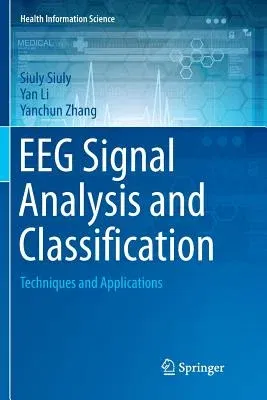Siuly Siuly
(Author)Eeg Signal Analysis and Classification: Techniques and Applications (Softcover Reprint of the Original 1st 2016)Paperback - Softcover Reprint of the Original 1st 2016, 25 July 2018

Qty
1
Turbo
Ships in 2 - 3 days
In Stock
Free Delivery
Cash on Delivery
15 Days
Free Returns
Secure Checkout
Part of Series
Health Information Science
Print Length
256 pages
Language
English
Publisher
Springer
Date Published
25 Jul 2018
ISBN-10
3319837915
ISBN-13
9783319837918
Description
Product Details
Authors:
Book Edition:
Softcover Reprint of the Original 1st 2016
Book Format:
Paperback
Country of Origin:
NL
Date Published:
25 July 2018
Dimensions:
23.39 x
15.6 x
1.45 cm
ISBN-10:
3319837915
ISBN-13:
9783319837918
Language:
English
Location:
Cham
Pages:
256
Publisher:
Series:
Weight:
385.55 gm

